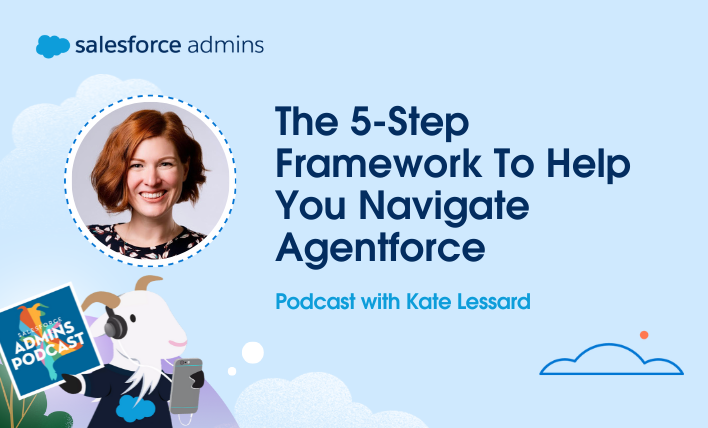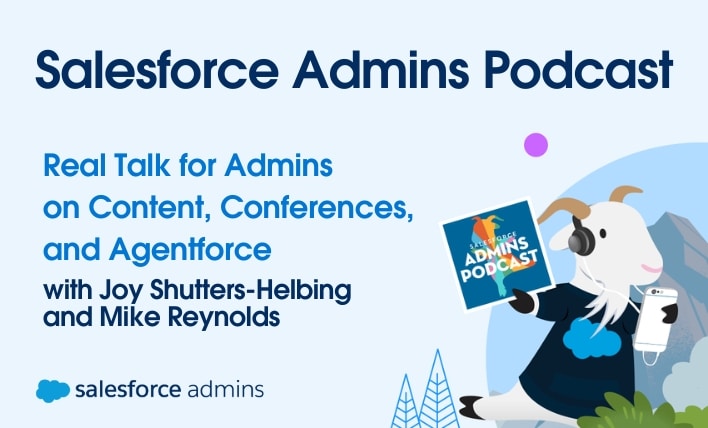Today on the Salesforce Admins Podcast, we talk to Kate Lessard, Lead Admin Evangelist at Salesforce. Join us as we chat about the new Agentforce Adoption Framework and her new YouTube series, “Kate Clicks Through It.” You should subscribe for the full episode, but here are a few takeaways from our conversation with Kate Lessard. […]






